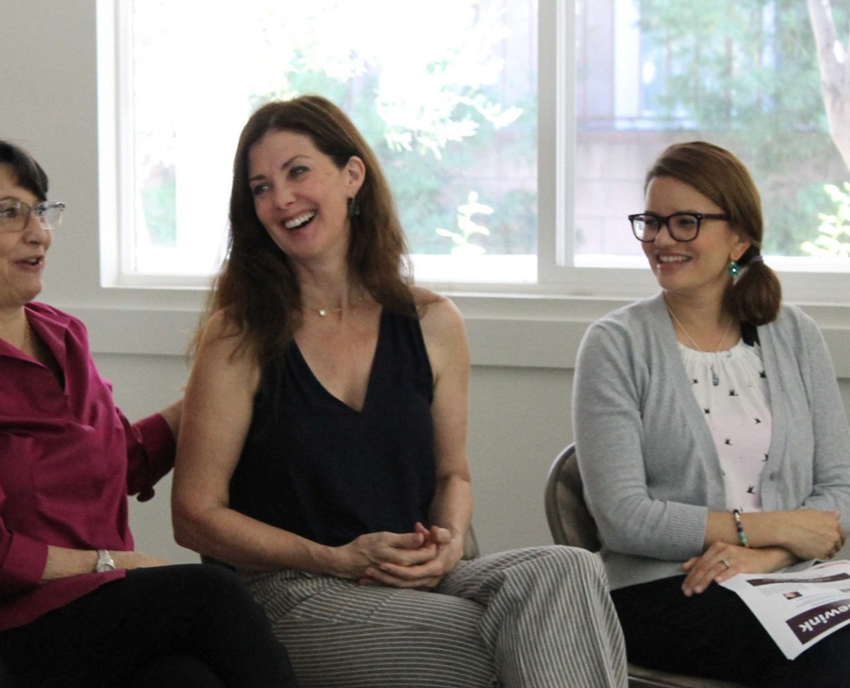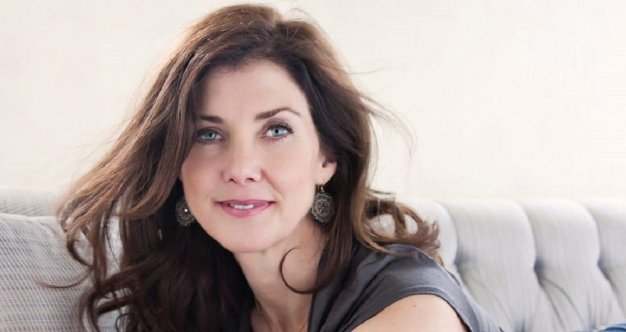(Photo credit: Christina Gressianu)
An interview with Jean Trebek feels like a massage for your eardrums. Even when she's not leading a “sound-healing” session, her voice has the soothing cadence of waves crashing on the beach, a crackling fireplace and a symphony of wind chimes all bundled into one."The human voice has so much power and healing," Trebek, who rarely speaks to the media, said in a phone conversation with SurvivorNet. She discussed, among other topics, her practice of sound healing, explaining that she uses a combination of crystal bowls and her voice to help people heal.
Read More

Jean Trebek: ‘It Comes From a Place of Love’
Trebek lives in Los Angeles with her husband, Alex. In March, Alex was diagnosed with advanced pancreatic cancer, and in the months since, there's been an outpouring of prayers, support and deep concern from his many thousands of fans. But while Trebek has played her sound-healing crystal bowls for Alex in the past, the spiritual practice, she told SurvivorNet, is her own thing; it helps her stay in touch with herself and to stay grounded. It also helps her to identify and share the beauty in life, which is also the goal of the blog insidewink, co-founded by Trebek a year ago.

RELATED: Jean Trebek Shares 13 Pieces of Advice For Coping With Life's Transitions
Trebek tells us that her sound healing, Reiki, Religious Science practice and the new blog are deeply personal pursuits that, first and foremost, help foster her own self-love. But that, in turn, can uplift those around her, including Alex.
"It comes from a place of love, because I want to uplift him … and when I keep my own self buoyed and enjoying my life, I can actually share that with him. He can look at me and have a sense of 'life is beautiful; my wife is doing something good,” she said.
The Origins of Jean Trebek’s Practice
Trebek is a licensed practitioner of Religious Science at the North Hollywood Church of Religious Science. As a practitioner, Trebek is considered by the church to be qualified to give spiritual mind treatments, which are sessions based in positive, affirmative prayer, believed to help people heal their minds and bodies.
Being a practitioner, she said, means she will sit with someone dealing with a health challenge and, through her prayer, work with them to understand that despite outward changes, there’s also within them “a power of presence; the eternal principle of life that is constant and changeless … something that my client can rely upon."
While the religion technically falls under the umbrella name "Centers for Spiritual Living," Religious Science, Trebek explained, is as much a philosophy and a way of life as it is a "religion” in the traditional sense of the word. It’s built on the premise that "there is love at the center of everything and that every thought, word, and deed is creative.” Trebek said that there's a universal higher power at the center of the religion, which she herself chooses to call God, but that each Religious Science devotee may perceive this power in their own way.
"It's really about self-love," Trebek said. "And that love is the love of the Creator, but there are so many names for that. We might say 'Universal Mind,' 'Infinite Intelligence,' 'God,' 'Jesus,' 'Abraham,' … or if you don't have a religious background, you might even call it, 'gardening.' It really does boil down to being kind to life and your fellow human beings and having compassion for each other's journey."
Religious Science: A Uniting of Traditions
The religion was originally founded by Ernest Holmes (1887-1960), who authored a work called "The Science of Mind' in 1926. Holmes, Trebek explained, wanted to unite the traditions from many different religions.
"He was an enlightened man who saw such a beautiful goodness in the traditions of Islam and Hindu and Christianity and Buddhism," Trebek explained. "And he actually brought forth all the good and the truest part of each religion and the truest part of the truest religion starts with loving yourself."
The religion, as Trebek described it, puts great value in the power of positive thinking, gratitude, and optimism. It's more about forgiveness than guilt. This was one of the aspects that first attracted Trebek to Religious Science.
"It was something that really spoke to me. I felt at home when I got there," she said.
Trebek was raised Catholic, and while she told SurvivorNet that she enjoyed the religion, it “wasn’t complete” for her.
She was in the process of healing from a personal challenge when a friend introduced her to "The Science of Mind."
"My friend said, 'Jean, this religion encompasses a lot of the teachings of Christianity, but without the guilt and the dogma,'" Trebek recalled, acknowledging that, a lot of the time, people are drawn to spirituality because they’re going through a challenge.
"It seems to me that when life is going the way someone wants it to go, the calling isn't really to go deeper," she said.
Religion and Spirituality as a Coping Mechanism During Life's Challenges
Meditation and Mindfulness as a Means to Healing
One of the most powerful aspects of Religious Science, Trebek shared, has been daily meditation.
"Learning to meditate was really a gift to myself," she said, explaining that a lot of people have misconceptions about meditation and view it as some magical transportation that’s an actual event. But in reality, Trebek said, meditating is a lot more fluid and flexible, and really just means looking within yourself and acknowledging the moment you're in and the feelings you're having and whatever it is that you might be going through.
"There is no one right way to meditate," she said. "You can sit with people, which is great … or you can just notice that you're sitting on a chair, notice that you're actually breathing … notice that you're back is against the chair." Some people prefer to meditate while they're creating or doing something, such as gardening, painting or fixing a sprinkler. Trebek said she takes time to meditate almost every day, and that she prefers walking meditations to sitting still.
RELATED: Don't Buy into the Backlash the Science on Meditation is Clear
During a walking meditation, Trebek said, she’ll keep her eyes forward and her chin held up. Then she will deliberately tell her mind to stop thinking and stop judging and start just noticing.
"I'll notice the colors around my walk, I'll notice the trees, the leaves, the cloud formations. … I'll just be really present about my surroundings, you know, 'Oh, it's a gray day,' or 'I just saw a dog.'
"If you're obsessing about something,” she continued, “you can actually command your mind to stop. Your mind is like a wild kid in a candy store. But the body wants to relax and not always be on this fight-or-flight, constant cortisol state. The mind and the body are directly linked, so when the mind can kind of relax the body follows that. And that's so healing."
Trebek's favorite mantra about meditation, she said, is one by the author Neale Donald Walsch. It reads, "If I don't go within, I go without."
In Trebek's life especially through the challenges she's faced and continues to face this mantra holds true.
"I don't feel as grounded in my life when I don't meditate," she said. "I have a sensitive nature that really needs to have a little more quiet time and alone time."
The Established Benefits of Integrative Medicine
Turning to sound healing, Reiki, or meditation as a means of healing one’s physical health can be beneficial when used in conjunction with conventional medicine. Alternative medicine’s sometimes bad rap comes from people who exclusively approach their healing with these practices while foregoing traditional medicine (doing so can have life-threatening implications).
RELATED: Nearly 40% of Americans Believe Alternative Medicine Can Cure Cancer
But using healing practices alongside conventional medicine is a joint approach called “integrative medicine” — and this can have positive results. According to the American Society of Clinical Oncology, for example, there is data showing that meditation creates "reductions in psychological distress in patients with lung cancer, improves mood and general well-being in patients across several cancer diagnoses, as well as enhances psychological functioning and mindfulness in partners of cancer patients."
RELATED: The Difference Between Integrative Medicine and "Alternative Medicine"
Dr. Brian Berman, director of the Center for Integrative Medicine at University of Maryland, explained to SurvivorNet in a previous conversation that integrative medicine “very much believes in the power of conventional medicine, but it’s trying to bring in other evidence-based approaches, and to optimize people’s health and well-being.” Meditation, along with diet, certain nutrition supplements, acupuncture, massage therapy, yoga, and a host of other treatments and practices can all fall into that latter category of additional approaches that optimize people’s health and wellbeing.
RELATED: Energy Healing? Kara Ladd's Cancer Journey Took Her Down a Spiritual Path
Learn more about SurvivorNet's rigorous medical review process.


